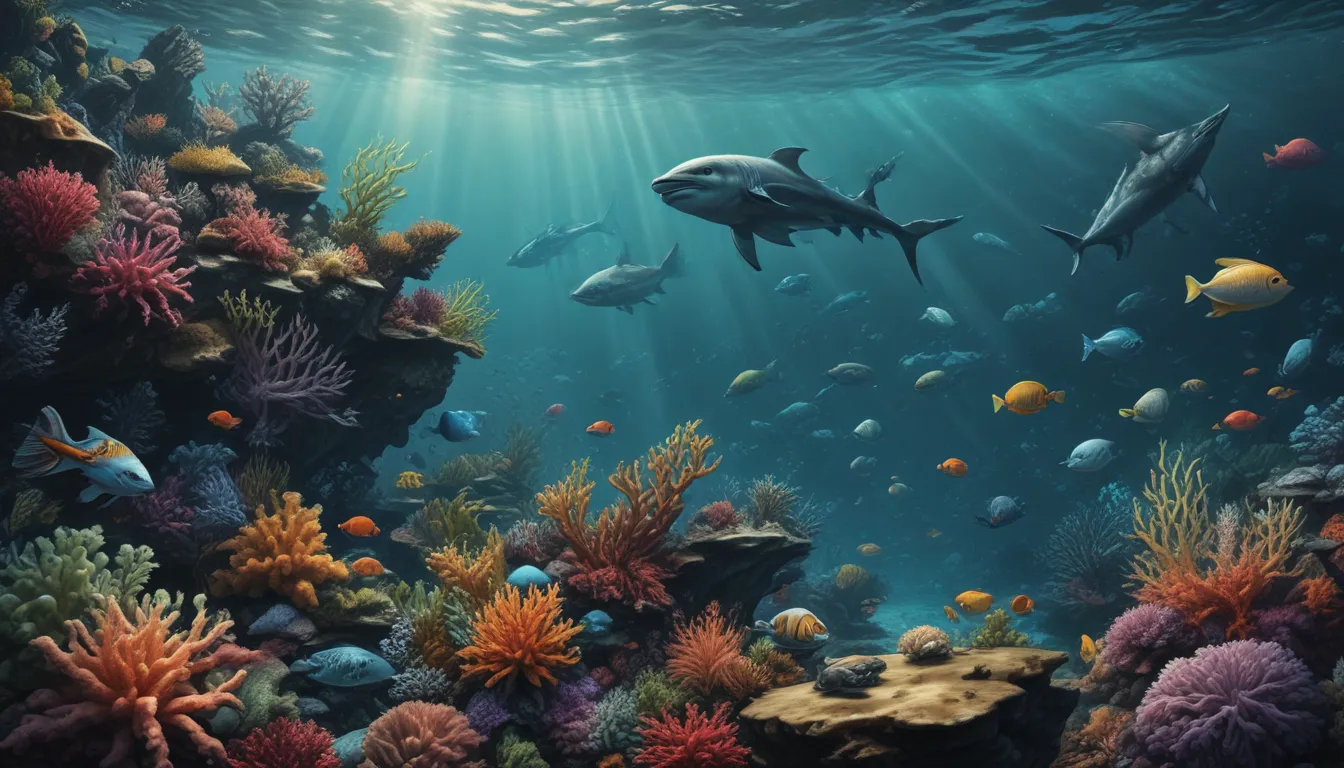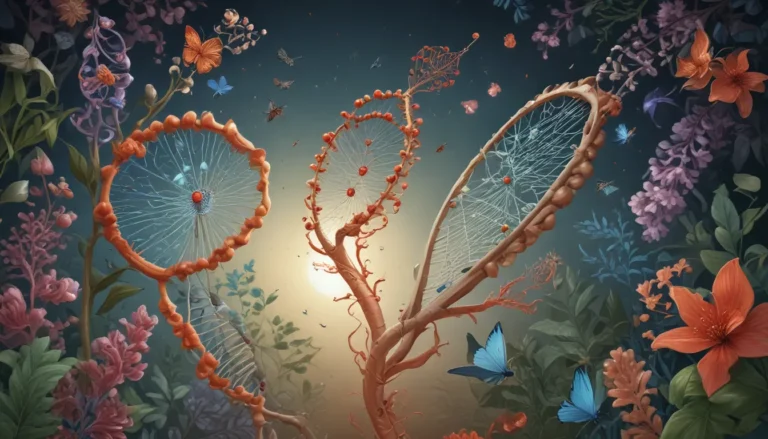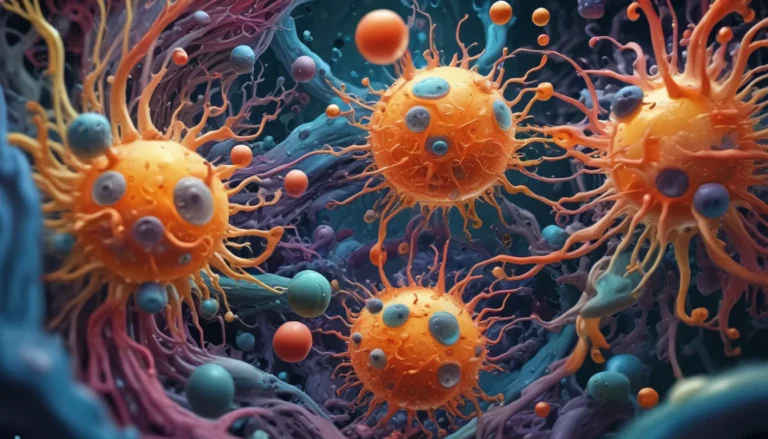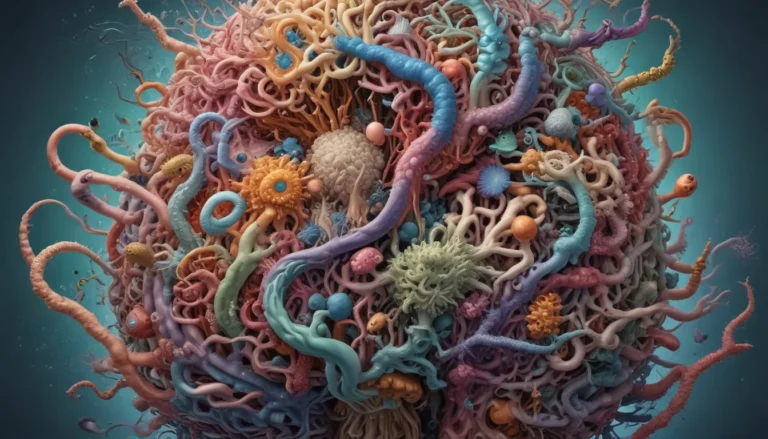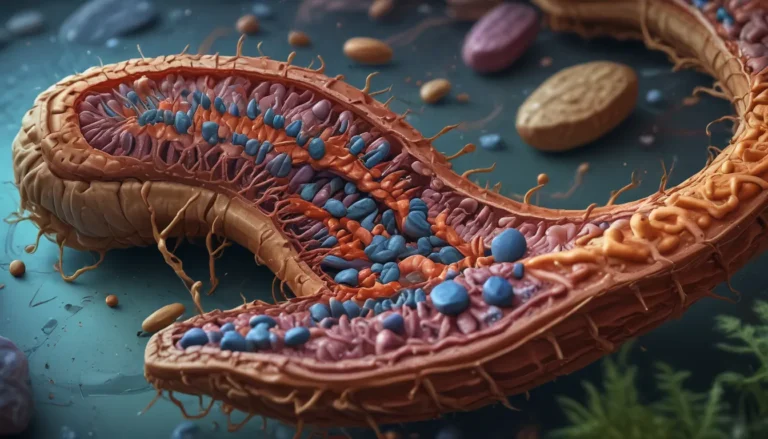A Note About Images: The images used in our articles are for illustration purposes only and may not exactly match the content. They are meant to engage readers, but the text should be relied upon for accurate information.
Welcome to the enchanting world of marine biology, where the mysteries and wonders of the ocean come to life. From vibrant coral reefs to majestic marine mammals, marine biology provides a gateway to understanding the diverse life forms that call the seas their home. Join us on an educational journey as we delve into fascinating facts about marine biology, shedding light on the captivating secrets of marine life.
Unveiling the Depths: What is Marine Biology?
At its core, marine biology is a scientific discipline dedicated to the study of marine organisms, their behaviors, interactions, and the ecosystems they inhabit. From marine ecology to marine genetics, this field encompasses a wide range of sub-disciplines that contribute to our understanding of the ocean’s intricate web of life.
Preserving Biodiversity: The Importance of Conservation
Marine ecosystems are teeming with a vast array of species, many yet to be discovered. By studying marine biology, scientists can uncover the mysteries of these underwater worlds and work towards conserving the biodiversity that sustains them. Through research and conservation efforts, we can protect the health and sustainability of marine ecosystems for generations to come.
Guardians of the Climate: The Role of Oceans in Climate Regulation
Our oceans play a crucial role in regulating the Earth’s climate by absorbing and storing heat and carbon dioxide. Understanding the complex interactions between marine organisms and their environment is key to predicting and mitigating the effects of climate change. Through marine biology research, we can unlock valuable insights into how our oceans influence the global climate system.
Sustainable Seas: The Importance of Resource Management
The ocean provides us with valuable resources such as food, medicines, and minerals. Marine biology research helps inform sustainable management practices, ensuring the responsible use of these resources while minimizing negative impacts on marine ecosystems. By implementing sound resource management strategies, we can protect the delicate balance of life beneath the waves.
Monitoring Our Waters: The Role of Environmental Monitoring
Marine biologists play a vital role in monitoring and assessing the health of marine environments. By studying indicators such as water quality, species abundance, and biodiversity, scientists can identify environmental changes and develop strategies for conservation and restoration. Through careful monitoring, we can track the health of our oceans and take proactive steps to protect them.
Marvels of the Deep: Exploring Marine Mammals and Coral Reefs
Marine biology encompasses the study of fascinating creatures such as marine mammals and vibrant coral reefs. From dolphins and whales to colorful coral polyps, these marine organisms showcase the diversity and beauty of the ocean. Dive into the depths with us as we uncover the wonders of marine life, from the intricate relationships of symbiotic organisms to the incredible migrations of sea turtles and humpback whales.
Protecting Our Precious Oceans: Addressing Threats and Promoting Conservation
Human activities, including overfishing, pollution, habitat destruction, and climate change, pose significant threats to marine ecosystems. Through efforts to protect endangered species, promote sustainable fishing practices, and establish marine protected areas, we can work together to safeguard the health and vitality of our oceans. Let us join hands in preserving the wonders of marine biology for future generations to enjoy.
Illuminating the Deep: Bioluminescence and Marine Migration
The ocean abounds with fascinating phenomena, such as bioluminescent organisms and incredible marine migrations. Adaptations like bioluminescence serve as a beacon of light in the darkness of the deep sea, while migrations like those of humpback whales and sea turtles showcase the resilience and tenacity of marine life. Explore these captivating features of the ocean with us as we unveil the secrets of marine biology.
Embracing Marine Symbiosis and Deep-Sea Discoveries
In the world of marine biology, symbiotic relationships and deep-sea discoveries abound. Witness the intricate alliances formed between marine organisms, such as clownfish and sea anemones, where mutual benefit thrives. Delve into the mysteries of the deep sea, where creatures like the giant squid and anglerfish reveal the extraordinary adaptations that enable them to survive in the most extreme environments. Join us on a voyage of discovery as we uncover the hidden wonders of the ocean depths.
Conclusion: A Call to Action for Marine Conservation
As we journey through the realms of marine biology, we are reminded of the interconnectedness and fragility of our oceans. Through research, education, and sustainable practices, we can protect and preserve the marine environment for generations to come. Let us celebrate the beauty and complexity of marine life and work together to ensure the continued health and vitality of our precious oceans. Together, we can make a difference in the conservation of our oceans and the preservation of marine biodiversity.
Dive Deeper: FAQs on Marine Biology
What education is required to become a marine biologist?
To pursue a career in marine biology, a bachelor’s degree in marine biology, marine science, or a related field is typically required. Higher-level positions and research may necessitate a master’s or doctoral degree in marine biology.
What career options are available in marine biology?
Marine biologists can explore diverse career paths in research, conservation, education, and policy. Opportunities may be found in universities, government agencies, aquariums, research institutions, or non-profit organizations dedicated to marine conservation.
What skills are essential for a career in marine biology?
Skills such as strong analytical abilities, critical thinking, problem-solving, and effective communication are important for marine biologists. Fieldwork experience, scuba diving certification, and proficiency in data analysis and research techniques are also valuable assets in this field.
What are some current challenges facing marine biology?
Marine biologists face a host of challenges, including overfishing, habitat degradation, pollution, climate change, and biodiversity loss. Addressing these challenges requires collaborative efforts, innovative research, and effective conservation strategies to protect our oceans and marine life.
How can individuals contribute to marine conservation efforts?
Individuals can support marine conservation by adopting sustainable fishing practices, reducing plastic waste, advocating for marine conservation organizations, and raising awareness about the importance of protecting our oceans. By taking proactive steps to preserve marine biodiversity, we can all play a role in safeguarding our precious marine ecosystems.
As we immerse ourselves in the wonders of marine biology, let us embrace the opportunity to learn, explore, and protect the treasures of the ocean. Together, we can make a difference in the conservation of our oceans and the preservation of marine biodiversity for generations to come. Join us on a journey of discovery as we celebrate the beauty and complexity of marine life and work towards a sustainable future for our precious oceans.
